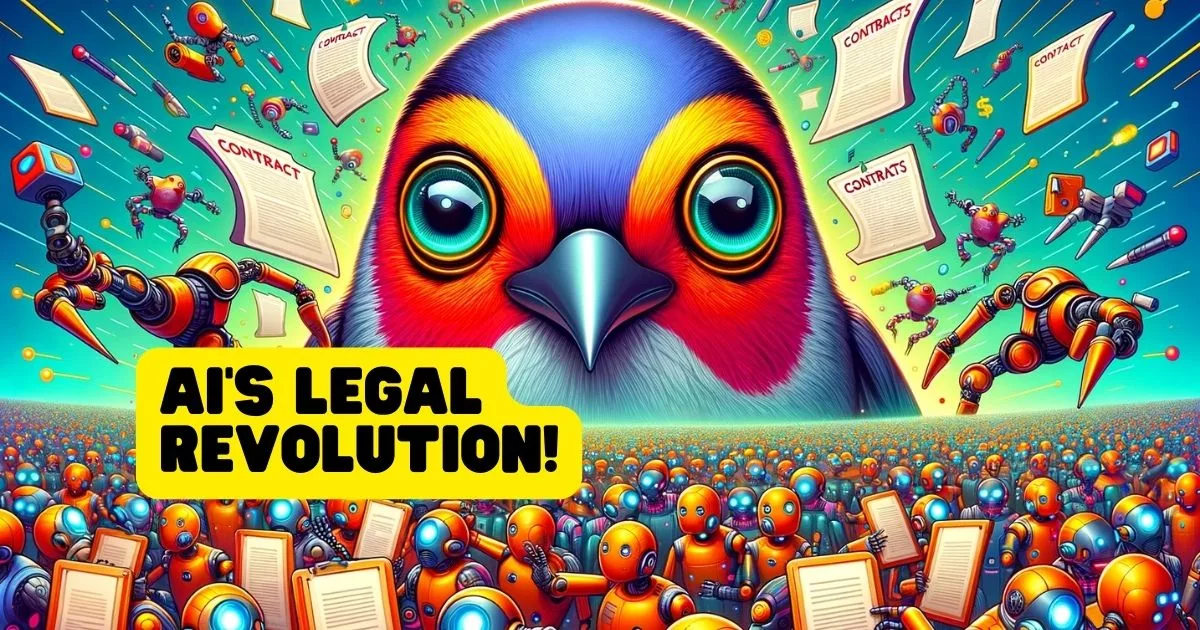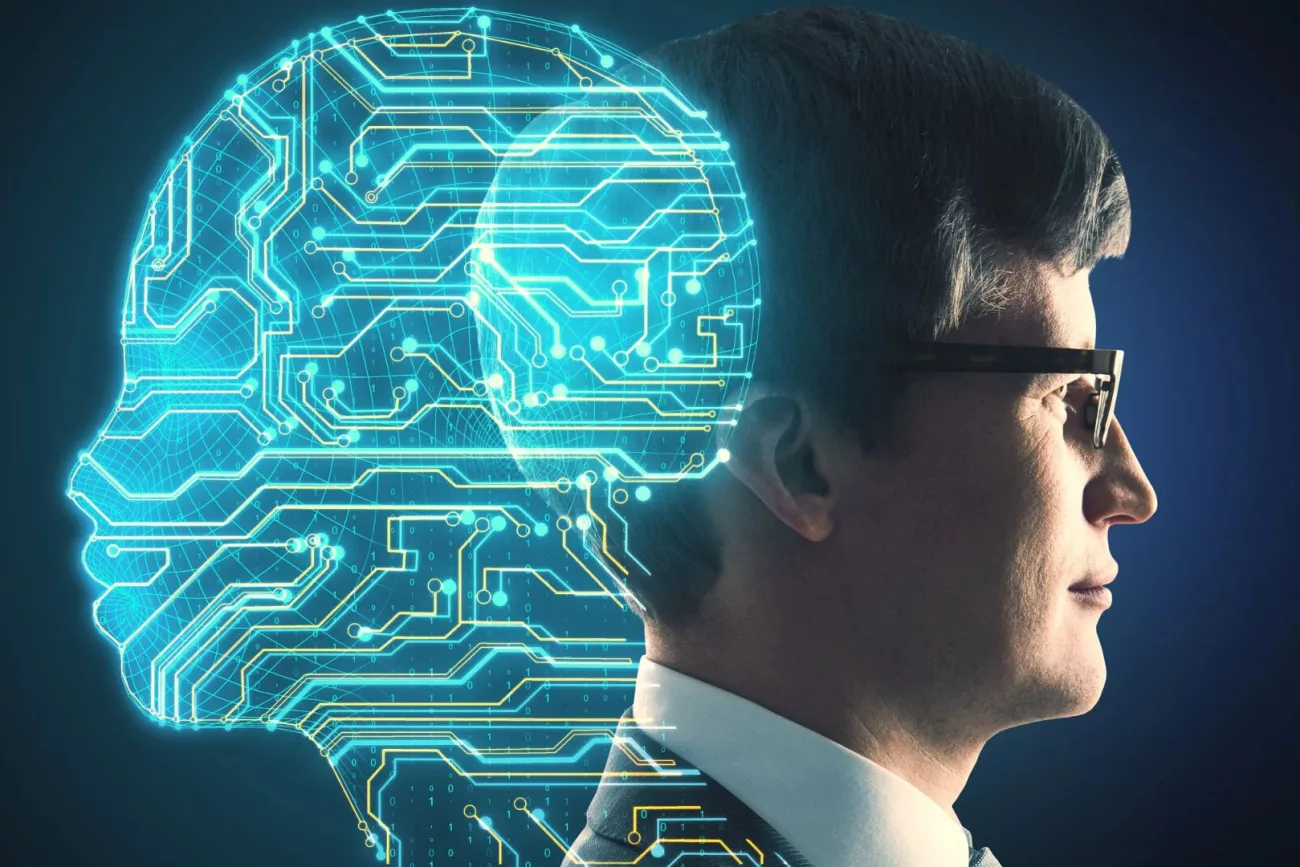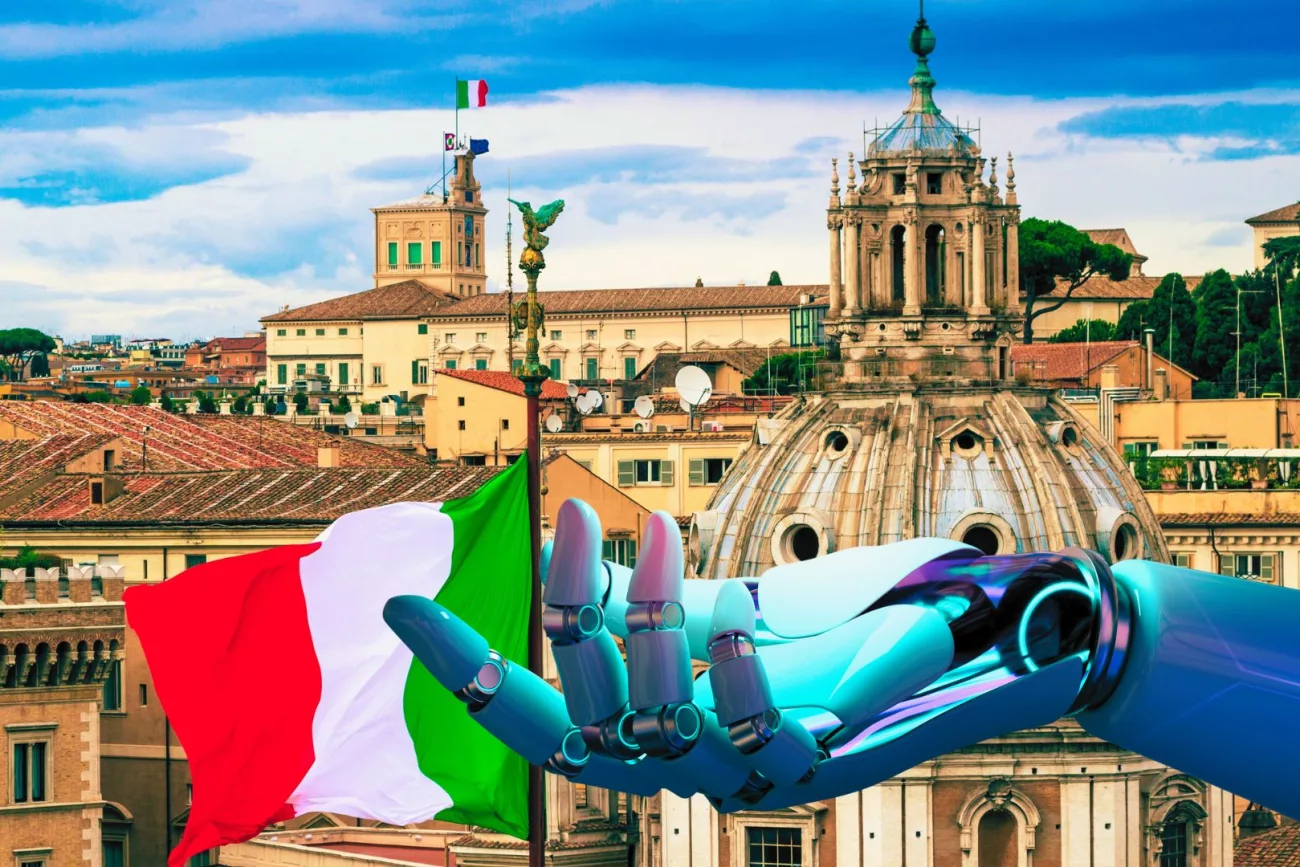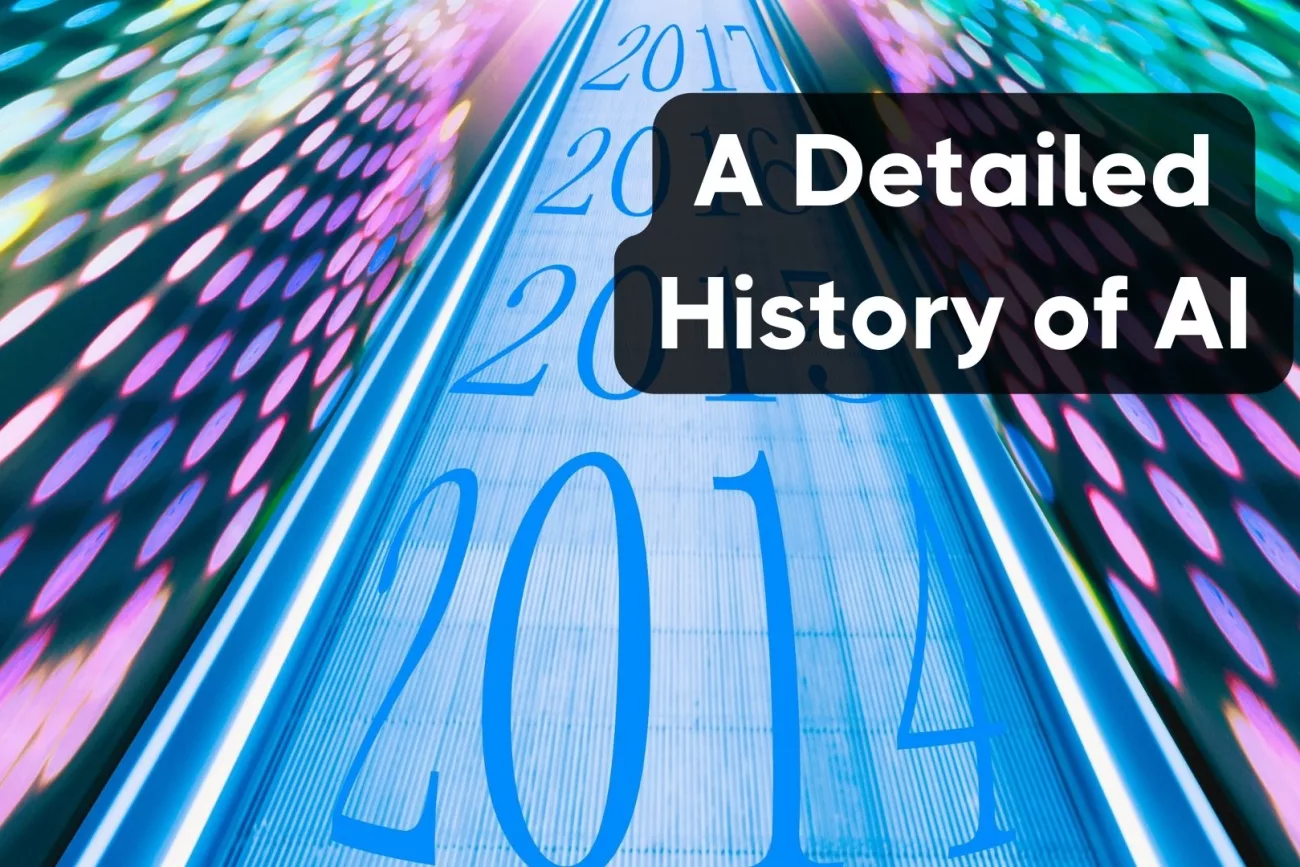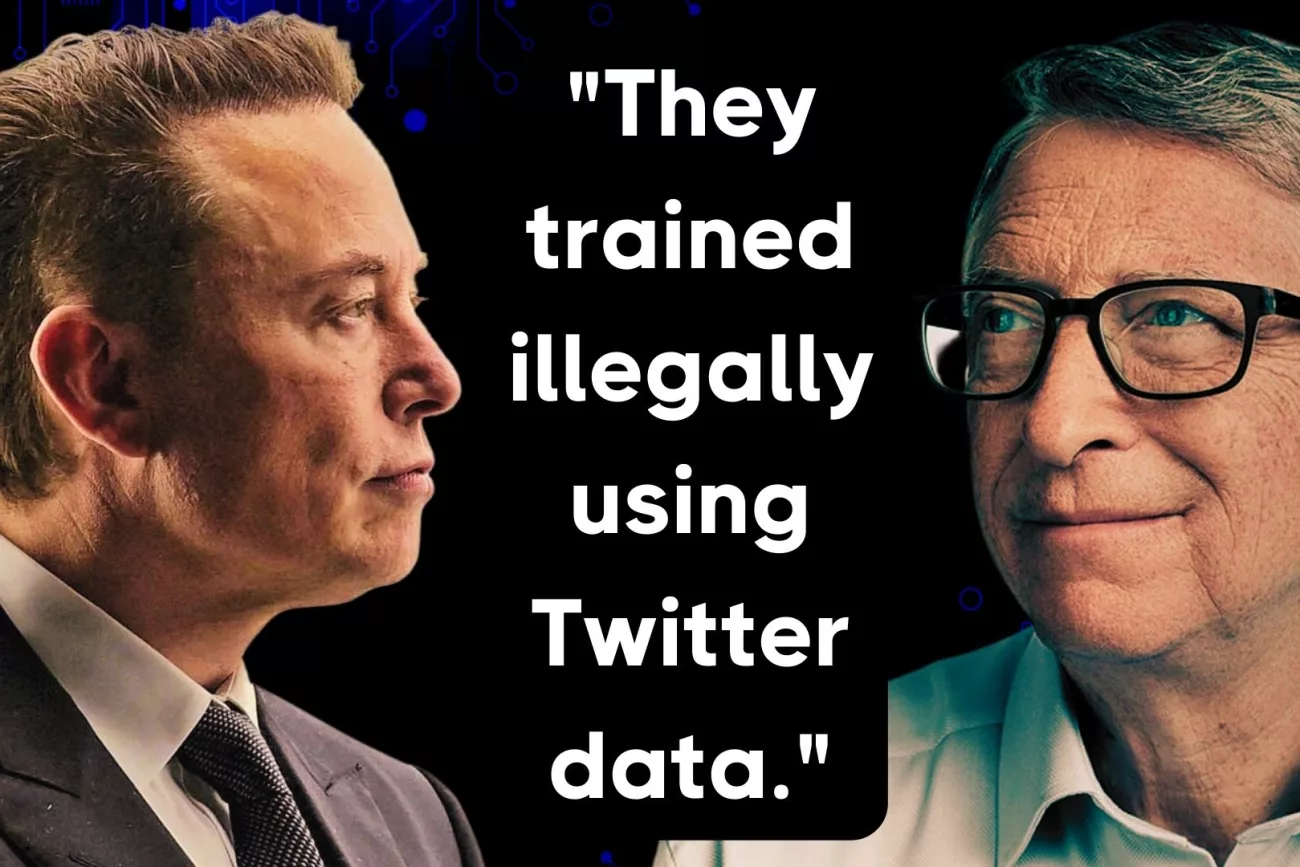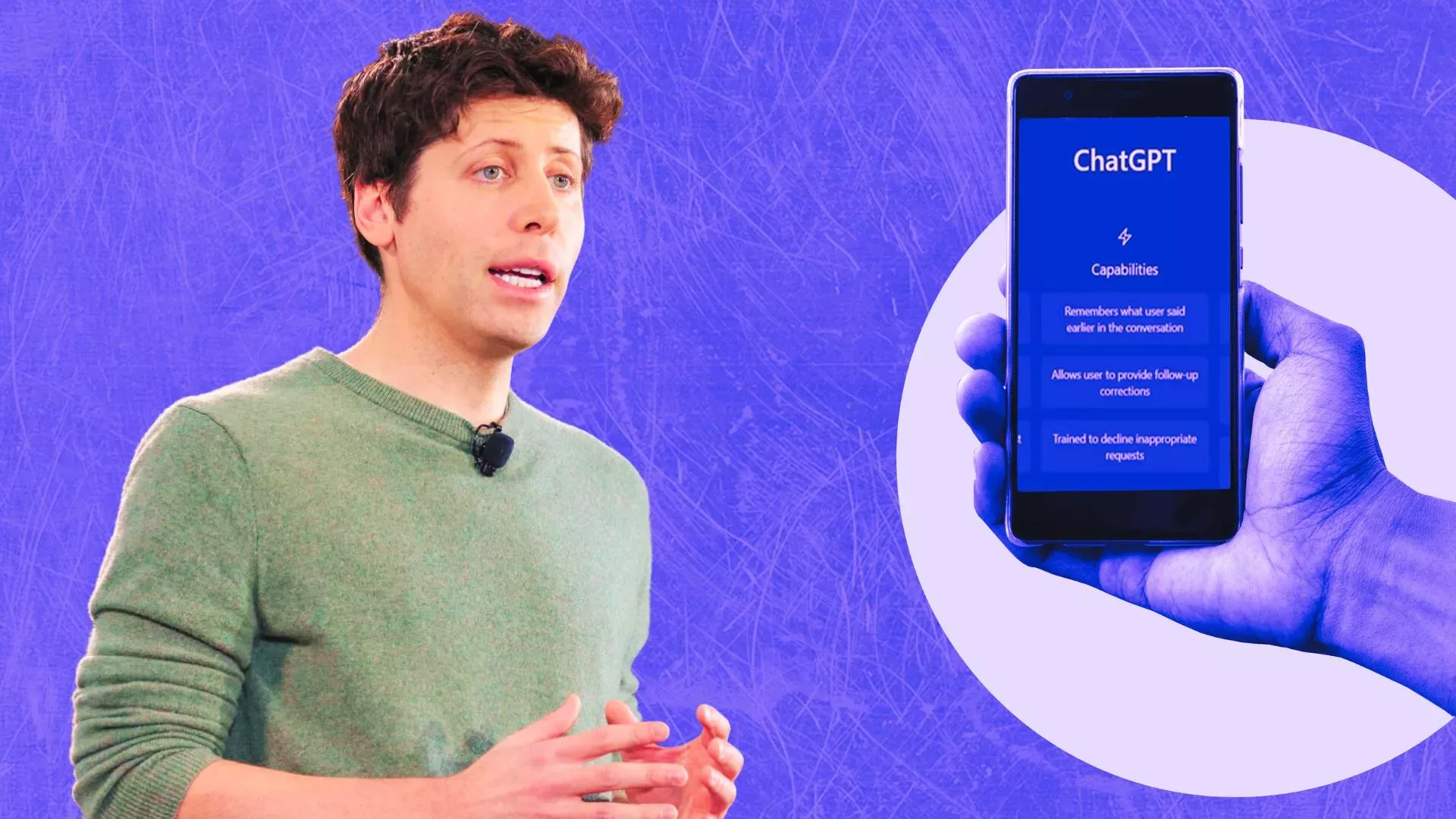
Key Points:
- Introduction of ChatGPT Enterprise: OpenAI’s advanced tool tailored for legal firms with powerful features.
- The AI Competition: Comparison of ChatGPT Enterprise and Microsoft’s Bing Chat in the legal tech space.
- Legal and Ethical Implications: Addressing concerns of data privacy, monetization vs. ethics, and the potential impact on human jobs.
- Future of Legal Professionals: Emphasis on adaptability, upcoming tools for legal teams, and the shifting landscape due to AI.
ChatGPT Enterprise: The Legal Dilemma that Has Lawyers in a Frenzy 🤯
The Launch that Shook the Legal World: ChatGPT Goes Corporate
Earlier this week, OpenAI, playing the disruptor, dropped the biggest tech bombshell since the introduction of ChatGPT: Enter ChatGPT Enterprise. This version, with its pumped-up specs and enterprise muscle, is now available for your legal firm’s chatty pleasure.
Highlights include:
- 🚀 Powered by GPT-4. It’s like upgrading from a sports car to a rocket.
- 🚫 No usage caps. Chat till your fingers hurt.
- ⏩ 2x faster performance. It’s like Usain Bolt on steroids.
- 💰 Exclusive API credits for the developer geeks among us.
But the big shocker? OpenAI wasn’t building this solo. Companies like Block, Canva, and even Estée Lauder were in on it.
Why Every Lawyer Should Be Sitting Up and Taking Notice 🧐
Ah, legal beagles, while you’re sipping on your morning espresso debating the latest landmark judgement, the AI revolution is quietly rewriting the rules of the game. And no, we’re not talking about replacing you with a robot in a suit (yet). But, there’s a reason you should be as intrigued by ChatGPT’s emergence as you are by a last-minute courtroom twist.
Here’s Why You Can’t Ignore This Digital Dynamo:
High Stakes Investment: 💰
Microsoft casually dropped a whopping extra $10 billion into OpenAI’s coffers this year. This isn’t pocket change folks; it’s a resounding endorsement from tech giants about the future of AI in professional sectors. Ask yourself: if behemoths like Microsoft are buying into it, what does it signal for the smaller fish?
Rapid Adoption: 🚀
Imagine a scenario where nearly the entire population of Mexico suddenly starts using a single app. Well, that’s precisely the scenario with ChatGPT. Within just sixty days post-launch, over 100 million monthly active users were playing in its digital sandbox. For a perspective, that’s faster growth than any legal software out there!
The Big Boys Are On Board: 🏢
A staggering 80% of Fortune 500 companies have already begun integrating ChatGPT into their operations. When industry giants who usually move with the speed of a snail (no offense) swiftly jump onto the AI bandwagon, it’s a sign. The question isn’t if the legal industry will catch on, but when.
The Paralegal of Tomorrow: 🤖⚖️
Sure, ChatGPT won’t be making your coffee or listening to your courtroom rants, but its capabilities can aid in legal research, document drafting, and so much more. Think of it as your tireless paralegal that doesn’t need weekends off.
Adapting or Falling Behind: 🔄
Industries evolve, and the legal realm is no exception. Those who adopt, adapt. And those who don’t? Well, remember when some folks thought the internet was just a ‘fad’?
The ChatGPT vs. Bing Chat Legal Battle: A Rumble in the AI Jungle ⚖️🤖
Legal professionals are no strangers to competition, but this time, it’s not in the courtroom, but in the realm of advanced enterprise chat solutions. The heavyweight contenders? OpenAI’s ChatGPT Enterprise and Microsoft’s Bing Chat. So, which AI-driven chat titan will come out on top for the legal industry?
Here’s the Breakdown, ChatGPT’s Strengths:
Custom Tailored AI: 🎩
ChatGPT boasts of a wide range of customization and training capabilities. This means it’s not just a generic chatbot; it can be groomed and refined to understand the intricate world of legalese. Imagine a digital assistant that knows the difference between ‘tort’ and ‘torte’!
Swift Documentation: 📜
With ChatGPT’s advanced language model at the helm, generating legal documents can be efficient and precise. Whether it’s whipping up contracts or producing legal briefs, ChatGPT can do so with the same expertise as a seasoned lawyer – minus the billable hours.
Bing Chat’s Strongholds:
The Microsoft Advantage: 💼
Being a child of the Microsoft family, Bing Chat is nestled comfortably within the tech giant’s vast enterprise ecosystem. This implies an inherent capability to integrate seamlessly with a myriad of tools that law firms may already be using. Think about it – your Office 365 suite, Teams chats, and SharePoint documents all potentially in one place!
Familiarity & Support: 🌐
Microsoft has been a cornerstone in the enterprise sector for decades. Bing Chat benefits from this lineage, bringing with it a familiar interface and the assurance of robust Microsoft support and security.
The Final Verdict:
🔥 Deep Dive Perspective: This isn’t merely a battle of chatbots. This showdown revolves around a much more profound narrative: shaping the future of legal processes and practices. As AI becomes more ingrained in every industry, the choice between these two platforms will likely influence not just how law firms communicate, but how they operate and serve clients in the digital age.
So, legal professionals, which corner are you in? Are you Team ChatGPT with its deep customization, or Team Bing Chat with its robust integration capabilities? Only time will tell which contender will capture the legal sector’s heart. But one thing’s certain: the future of legal AI is incredibly promising.
The Ethics, Economics, and Legal Implications: Unraveling the AI Web 🧐
In an age where artificial intelligence not only augments but at times supersedes human capability, the confluence of ethics, economics, and legal intricacies demands intense scrutiny. The rise of platforms like ChatGPT in the legal realm prompts an array of quandaries we need to dissect.
Legal Quandary 1: The Fortress of Data Privacy 🏰
The Assurance:
OpenAI, the force behind ChatGPT, has been vocal about its commitment to data privacy. They declare, in no uncertain terms, that business data doesn’t feed into their training, and they ensure encryption for all interactions.
The Challenge:
But in the labyrinth of data laws, like GDPR, is this assertion sufficient? How do we ascertain the veracity of this commitment? Courtrooms and regulatory boardrooms alike demand more than mere assurances. They seek demonstrable evidence, rigorous compliance protocols, and contingency strategies for potential breaches.
Legal Quandary 2: The Tightrope of Monetization and Ethics 💸
The Stakes:
Operating a behemoth like ChatGPT isn’t a walk in the park. With whispers of its daily maintenance floating at a staggering $700,000, the financial stakes are sky-high.
The Concern:
When revenue struggles to keep pace with such monumental costs, does it strain OpenAI’s ethical compass? The age-old tension between profitability and ethics resurfaces. How does OpenAI prioritize? Can stakeholders and users be confident that ethical considerations aren’t compromised in the pursuit of economic viability?
Legal Quandary 3: AI Assistants — Allies or Adversaries? 🤖
The Paradigm Shift:
The penetration of ChatGPT Enterprise into legal frameworks isn’t just about innovation; it’s about reshaping roles. The tool’s prowess in assimilating and optimizing legal tasks raises eyebrows and concerns alike.
The Workforce Dilemma:
What becomes of human legal assistants and paralegals who’ve been the backbone of many firms? As AI nudges its way into their territory, is job redundancy an inevitable aftermath? And beyond the immediate job concerns, how does this shift influence the quality of legal services, mentorship for budding lawyers, and the human touch in client interactions?
The AI-Driven Horizon for Legal Professionals: Are You Ready to Soar? 🚀
The fusion of technology with law has always been intriguing, but in the era of AI, it’s revolutionary. OpenAI, a pioneering force in this transformation, is charting a course that promises to redefine the way legal professionals operate.
OpenAI’s Blueprint for the Legal Domain 🗺️
ChatGPT Business Edition:
Tailored Solutions for Boutique Firms: Recognizing that one size doesn’t fit all, OpenAI is set to roll out ChatGPT Business, a bespoke solution specifically designed for smaller legal teams. This ensures that even boutique firms can harness the power of AI without being overwhelmed.
Superior Data Analysis Capabilities:
Beyond Chat: OpenAI is investing in enhanced data analysis tools. For legal professionals, this could spell a revolution in tasks like contract reviews. Think about the potential to parse through intricate clauses, identify ambiguities, and even predict potential legal vulnerabilities—all in a fraction of the time it currently takes.
Expanding the AI Arsenal:
Beyond the Legalese: OpenAI’s vision isn’t restricted to lawyers alone. The upcoming tools could be game-changers for legal analysts, marketers in law firms, and those in client support roles. Imagine client queries being addressed promptly 24/7 or predictive analytics helping marketers tap into emerging legal needs.
The Million-Dollar Question 💡
The landscape is shifting, and the onus is on legal firms and professionals: do you pioneer the change or play catch-up? As AI redefines efficiency, accuracy, and client engagement, will your firm ride the wave as an early adopter or risk obsolescence?
📣 Your Legal Tech Odyssey Awaits: If this deep dive into ChatGPT Enterprise has lit a spark of interest, you’re on the cusp of something monumental. The intersection of law and technology holds secrets and strategies that could catapult your firm into the future. 🔥 Don’t be a mere spectator. Subscribe to our newsletter now and step confidently into the vanguard of legal tech innovation!
Share this post
Frequently Asked Questions (FAQs)
Q: What is ChatGPT Enterprise?
A: ChatGPT Enterprise is OpenAI’s advanced version tailored for corporate needs, specifically the legal sector.
Q: Who has been involved in the development of ChatGPT Enterprise?
A: Besides OpenAI, companies like Block, Canva, and Estée Lauder collaborated in its development.
Q: Why should legal professionals care about ChatGPT Enterprise?
A: With major investments from tech giants and rapid adoption rates, it’s set to redefine legal operations, research, and client interactions.
Q: How does ChatGPT Enterprise compare to Bing Chat?
A: While ChatGPT offers deep customization, Bing Chat provides robust integration capabilities thanks to its Microsoft lineage.
Q: What ethical concerns arise with AI in the legal sector?
A: Concerns revolve around data privacy, the balance between monetization and ethics, and the future roles of human legal assistants.



